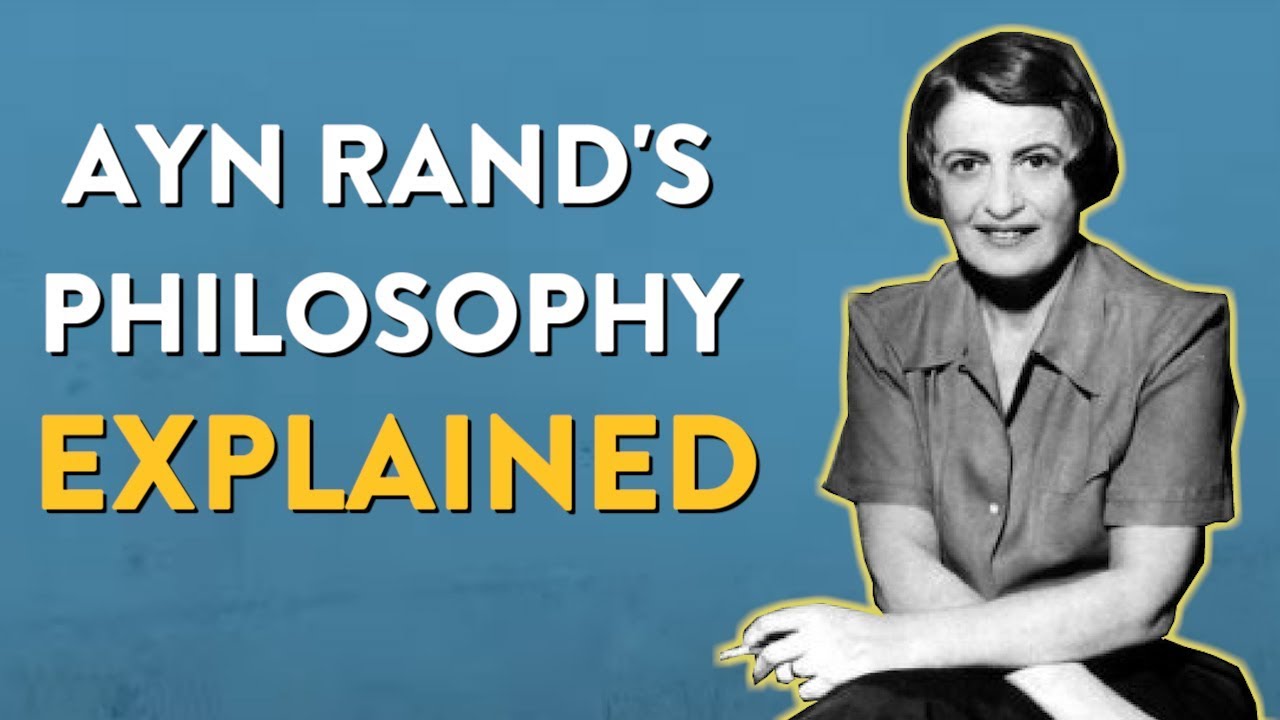Ayn Rand, the enigmatic philosopher and novelist, remains a contentious figure in modern intellectual debates. Known for her radical take on individualism and capitalism, her philosophy of Objectivism confronts traditional cultural norms. Whether you love her or loathe her, there’s no denying that Rand’s ideas spark intense discussions and numerous movements centered on personal empowerment. Let’s dive into seven ways Rand’s ideas challenge the cultural status quo and explore how they resonate with today’s world.

7 Ways Ayn Rand’s Ideas Challenge Cultural Norms

1. The Virtue of Selfishness
Rand’s audacious claim that acting in one’s self-interest is not just moral but essential for human flourishing goes against the grain of collectivist ideologies. This is especially evident in modern movements that advocate for personal empowerment, which is totally embraced by the likes of Tesla. Their groundbreaking innovations embody the spirit of individualism, demonstrating how one person’s vision can revolutionize entire industries. Who knew being selfish could lead to societal benefits?

2. Rationality Over Sentiment
In Rand’s universe, reason takes the spotlight. She believed rationality should guide human actions, completely contradicting the emotional appeals we see in today’s social conversations. Let’s think about political figures like Marianne Williamson, who often rely on heart-string-tugging rhetoric. The emphasis on data-driven decisions in corporate strategies today echoes Rand’s emphasis on rational thought, making us rethink how we approach discussions about who should lead in society.
3. Capitalism as the Only Moral System
For Rand, capitalism isn’t just an economic model; it’s the only moral framework that aligns with human nature and rights. In contrast, the modern socialist movements led by figures like Bernie Sanders paint a different picture, arguing for more governmental control. Yet, Rand’s vision highlights the successes of free-market champions like Amazon and Apple. These corporate leaders continue to push innovation, serving as prime examples of how capitalism can lead to societal advancement.
4. The Role of the Heroic Individual
Rand’s protagonists often showcase her ideals of strength and productivity. Characters like Howard Roark in The Fountainhead embody the essence of the entrepreneurial spirit. Modern figures like Elon Musk, who represent innovation, disruption, and—let’s be real—a little eccentricity, resonate strongly with Rand’s philosophy. They present a culture that celebrates individual achievements and creativity, rejecting the idea that success needs to fit a uniform mold.
5. Rejection of Altruism
To Rand, altruism is a moral trap. Her critiques challenge long-held beliefs about selflessness and social responsibility, influencing thinkers like Jordan Peterson, who delve into the balance of personal responsibility and societal obligations. We often hear the phrase “It takes a village,” but Rand would argue that personal growth and happiness come first. It’s a spicy take, but one that shifts how we view our obligations to one another.
6. The Pursuit of Happiness
Central to Rand’s philosophy is the belief that happiness serves as the ultimate moral purpose of life. This perspective aligns perfectly with contemporary self-help movements emphasizing personal fulfillment and lifestyle choices. Influencers like Marie Kondo encourage us to declutter not just our homes but our lives, turning inward to foster joy. Happiness may very well be the most sought-after currency in today’s society, and Rand paved the way for that conversation.
7. Art and Aesthetics as a Reflection of Reality
Rand viewed art as a representation of humanity’s highest values, and her ideas echo loudly in today’s creative industries. Artists like Banksy challenge societal norms with thought-provoking pieces that critique the government and capitalism. Just as Rand believed art should reflect human greatness, modern creators use their craft to stimulate dialogue and inspire change, proving that artistic expression still holds significant impact.

The Targaryen Legacy and Rand’s Influence on Contemporary Thought
Much like the Targaryen saga in House of the Dragon, where characters such as Daemon Targaryen, Rhaenyra Targaryen, and Aemond Targaryen wrestle with power, identity, and morality, Rand’s philosophy compels individuals to confront their roles in a capitalist society. Through the lens of Rand’s beliefs, we see reflections of the challenges these characters face and the often tumultuous journey toward self-discovery.
Daemon Targaryen: The Rebel Spirit
Characterizing fierce individualism, Daemon Targaryen reminds us of Rand’s heroic figures. His relentless pursuit of power and autonomy mirrors Rand’s celebration of the ambitious individual who defies societal norms. Just like Rand’s protagonists, Daemon’s rebellious spirit points to the entrepreneur’s drive—the kind of ambition that can shake the very foundations of tradition.
Rhaenyra Targaryen: The Battle for Identity
Rhaenyra’s quest for recognition resonates powerfully with Rand’s emphasis on asserting one’s values and identity. As she fights for her rightful place, the challenges she encounters reflect Rand’s belief that individuals must carve their paths against the expectations of society. Rhaenyra stands as a testament to the courage needed to pursue one’s aspirations, even when society pressures conformity.
Aemond Targaryen: The Cost of Ambition
Conversely, Aemond’s character presents a cautionary tale about unchecked ambition. While Rand champions self-interest, she also warns of the dark side: when ambition turns to excessive egoism. Aemond’s story lets us explore the dangerous nuances of Rand’s philosophy, showcasing how the relentless pursuit of success can lead to dire consequences—a lesson to all aspiring moguls and innovators out there.
Rand’s vision invites us to challenge long-standing beliefs, urging a rethink of how we approach individuality and ambition. Drawing parallels to the Targaryen legacy allows us to engage with Rand’s ideas on a deeper level.
As we move forward, the debate surrounding Ayn Rand’s Objectivism not only pushes us to reconsider our views on economics and morality but also compels us to contemplate how ambition and personal satisfaction shape our collective future. Much like the Targaryens, our ongoing struggle for individuality in a clustered world remains timeless, just fraught with new complexities and interpretations.
Whether you’re a die-hard Rand supporter or someone who finds her philosophy archaic, one thing is crystal clear: her thoughts resonate across generations, igniting conversations that keep cultural discourse lively and intriguing. So, let’s keep questioning, debating, and ultimately, exploring the rich tapestry that is our shared human experience!

Ayn Rand: The Controversial Visionary Behind Objectivism
A Life of Intrigue and Inspiration
Ayn Rand’s life was anything but ordinary. Born in Russia in 1905, she witnessed the turmoil of the Russian Revolution firsthand, which heavily influenced her later works. Interestingly, her journey to America was a pivotal turn. After film studies at the University of Petrograd, Rand was fascinated by cinema, even mentioning works like Earth Abides in script discussions. She believed in the power of storytelling and how it could shape values—a notion still echoed in today’s films. Her most famous works, like Atlas Shrugged, highlight individualism and capitalism, laying the groundwork for her philosophy of Objectivism.
But did you know that Rand had quite an adventurous taste beyond literature? She loved classic Hollywood films and often drew inspiration from them. For instance, she was captivated by the intensity of performances by actors like Chiwetel Ejiofor, known for his thought-provoking roles. It’s this passion for storytelling that perhaps led her to pen screenplays in the 1930s, proving that her imagination wasn’t confined only to novels.
The Legacy of Objectivism and Cultural Impact
The impact of Ayn Rand’s philosophy extends far beyond literature. In the 1970s, her ideas became intertwined with cultural movements that favored free-market capitalism, a trend that resonates with folks even today, much like the waves of El Nino 2024. And speaking of lasting influence, Rand’s characters often embody strength and independence, qualities mirrored in today’s media narratives, from Trainspotting‘s raw portrayal of societal tension to character arcs that evoke empathy and reflection.
However, Rand was also a polarizing figure. Many celebrated her as a champion of liberty, while others critiqued her as out of touch with reality. This complexity adds layers to her legacy, much like the nuance found in films that tackle significant themes, drawing comparisons to works with rich storytelling, such as those featuring Anna Fry or even the deeply philosophical tones present in Gojira.
Fun Facts That Might Surprise You
There’s always something new to discover about Ayn Rand! For instance, she was known to enjoy a good game of bingo—who would’ve thought? Fans often seek out free credits For Bingo blitz, similar to how they delve into Rand’s complex narrative structures.
Moreover, Rand’s unique lifestyle choices included a fondness for smart fashions—much like what you’d see at Aime Leon dore, where style meets intellect. Her preferences often reflected a dedication to her values, whether in her art, choices, or relationships, reminding us that every detail can tell a story. Even her interactions with fellow thinkers and creatives—like the actress Molly Sugden—demonstrated the breadth of her influence and the network she built over time.
In essence, Ayn Rand remains a fascinating figure, shedding light on individuality and capitalism. Her life and works continue to spark conversation and debate, just as compelling films capture our imaginations, holding a mirror to society as they challenge and entice us to think differently.


























